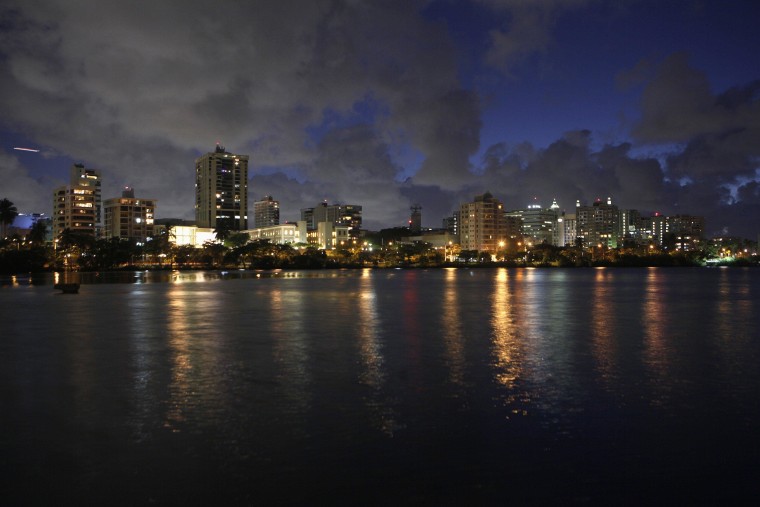A federal non-partisan report released Monday detailed some of the estimated changes in spending for some U.S. programs if Puerto Rico were to become the 51st state of the Union. Currently Puerto Rico is a commonwealth, or U.S. territory.
According to the report, if Puerto Rico were a state, spending on Medicare could increase from 4.5 billion to between $4.5 billion to $6.0 billion. On Medicaid, estimated federal spending could go from $685 million to between $1.1 billion to $2.1 billion. The SNAP or food stamp program could go from $1.9 billion to between $1.7 to $2.6 billion.
On individual income taxes, Puerto Rico taxpayers reported paying $20 million in 2010, primarily to the U.S. The GAO estimates if Puerto Rico had been a state, estimated individual income tax revenue from Puerto Rico to the U.S. would have ranged from $2.2 billion to $2.3 billion.
On corporate income taxes, federal taxes could go up from about $1.4 billion that was paid in 2009 to $5.0 to $9.3 billion. This number could fluctuate depending on whether companies stay put in the island after statehood or move some of their operations to foreign countries with lower taxes.
The GAO report drew very different responses from the island's two main political parties.
The GAO drew different responses from the two main political parties in the island. Puerto Rico Governor Alejandro Garcia Padilla, who advocates the commonwealth status, statehood, said in a statement that the report shows statehood would be an "economic blow" to the island, saying the "enormous tax burden that Puerto Ricans would be forced to shoulder as a state would be incredibly damaging to our economy….Statehood is a losing proposition for both Puerto Rico and the U.S."
The island's Resident Commissioner in Washington, Pedro Pierluisi is pro-statehood, and he took a different view of the report, as he stated to The Hill, saying statehood will be "mutually beneficial for Puerto Rico and the U.S. and that "equal treatment" will improve quality of life for the people of Puerto Rico and strengthen the economy while the U.S. gets more tax revenue.
Puerto Rico recently issued $3.5 billion in bonds to raise money after its economy has seen a steep decline in the last few years following the recession.
The GAO concluded that there are a lot of variables when it comes to outcomes regarding Puerto Rico under statehood.
"Consequently, statehood's aggregate fiscal impact would be influenced greatly by the terms of admission, strategies to promote economic development, and decisions regarding Puerto Rico’s government revenue structure."
